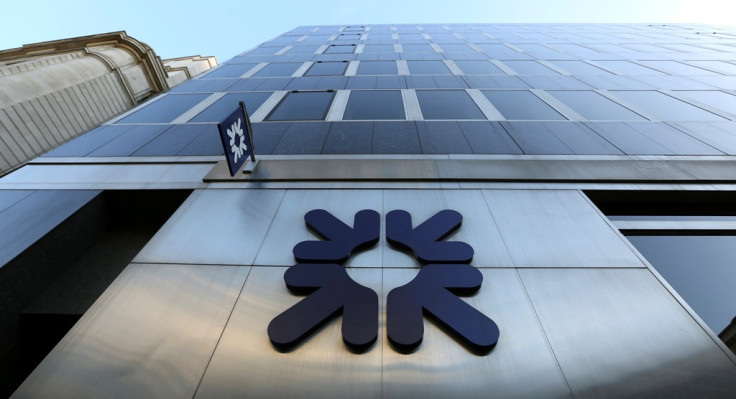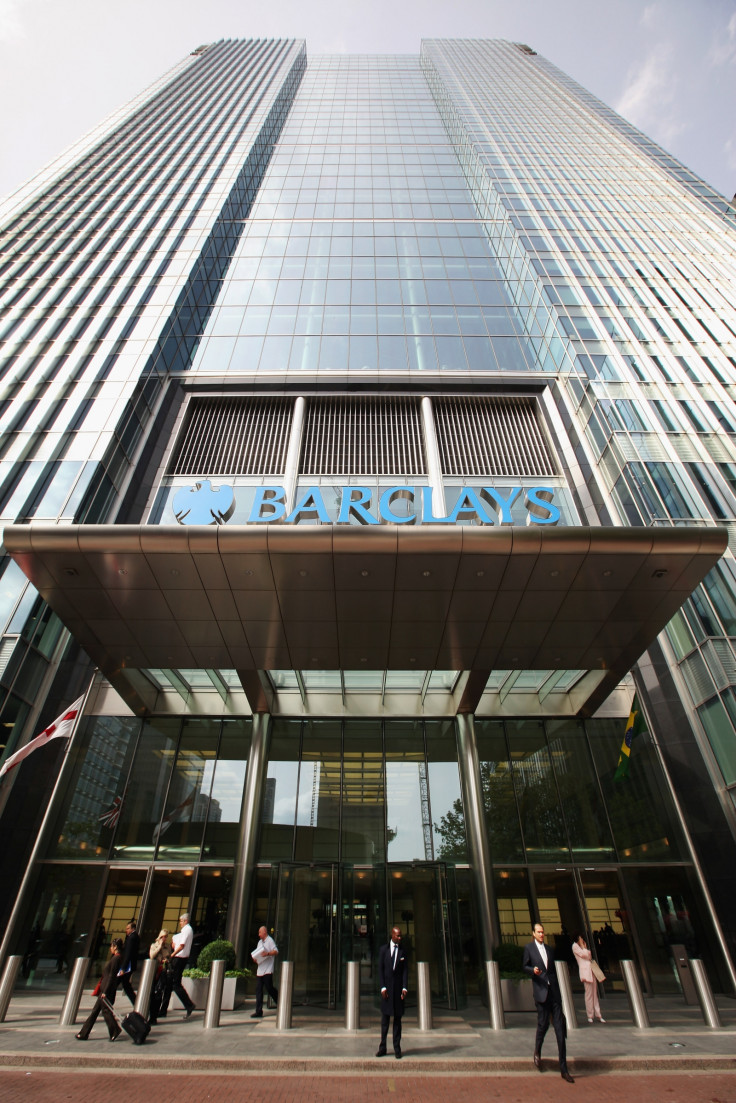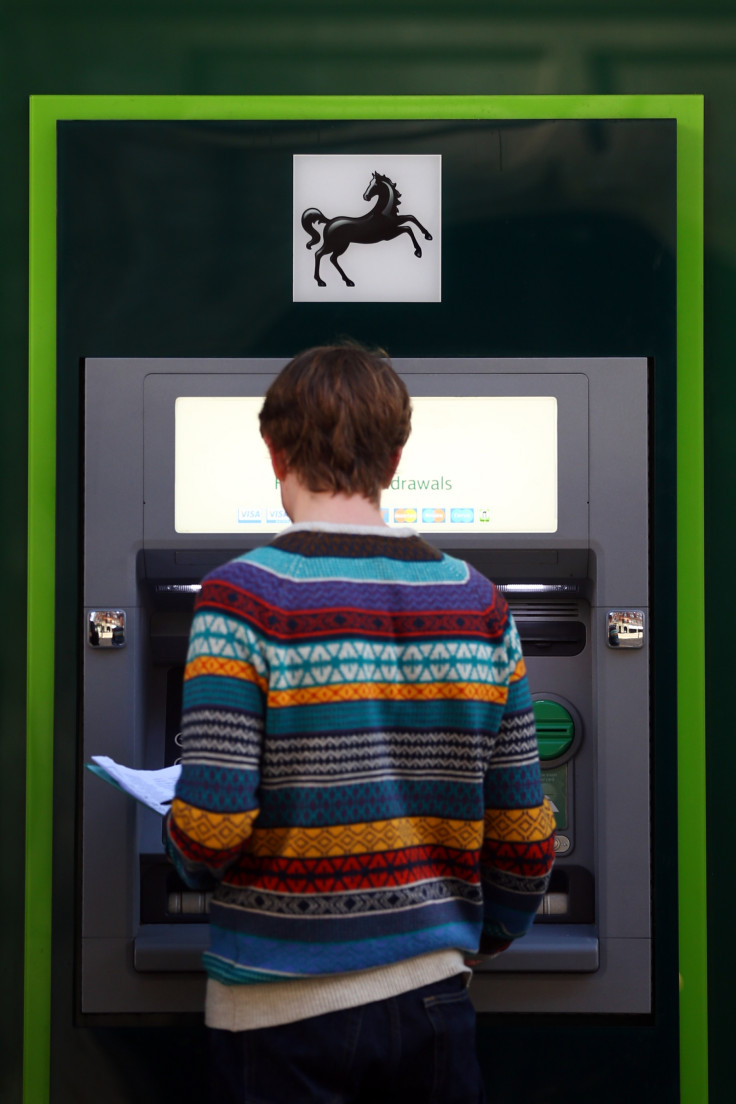RBS, Lloyds and Barclays expected to report the good, the bad and the ugly

Barclays, Lloyds and RBS all report their half-year earnings figures this week as analysts and market watchers predict more in the way of job losses, cost cuttings and fine provisions from the UK's biggest lenders.
But there could perhaps be good news from some unlikely quarters as tax-backed whipping boy RBS divests itself of more non-core slush in the run-up to reporting, making tentative steps towards a possible share buyback.
Barclays
Barclays, which is first to report, on Wednesday 29 July, is expected to announce more than 30,000 job cuts – part of its cost-cutting and refocusing following the shock dismissal of chief executive Antony Jenkins earlier this month.
Executive chairman John McFarlane is expected to decisively start implemented Barclays' strategy of return improvement which will focus on up-front non-core asset reduction, cost/income improvement in retail and commercial banking and reallocation of capital.

Analysts at Jefferies said: "Expect acceleration of strategy. We believe the executive chairman's eyes will be principally set on reducing non-core investment banking assets as this unit represents a 340bps (basis point) drag to Core ROTE of 11%.
"Recognising £3bn (£4.7bn, €4.2bn) of disposal costs up front to reduce assets associated with derivatives would be a favourable strategy in our view as capital and leverage would be lifted modestly, along with a 165bps uplift to 2017 group ROTE."
Barclay's investment bank has pursued a strategy focused on costs at the expense of balance sheet efficiency. Cutting back on trading assets and redeploying the capital savings into higher return advisory and underwriting businesses could lift the investment bank's earnings by 15%.
Jefferies analysts added: "Elsewhere, we believe there are still cost efficiencies that could be had in personal and corporate banking given this unit has the highest C/I (carrier-to-interference) ratio among UK peers. Achieving a four-point reduction in the C/I ratio of this unit relative to our 2017 estimate would lift segment earnings by 10%.
"Core ROTE could be lifted 150bps as a result of the above. As a result of the above actions in the investment bank and the personal and corporate banking units, 2017E Core ROTE would rise to 15.0% compared to our base case 13.5% estimate.
"This, together with the estimated non-core asset reductions would give rise to a bull case 426p valuation, some 51% above where the shares trade today," noted Jeffries.
RBS
RBS follows Barclays reporting its half-year results on Thursday (30 July). In his recent summer budget chancellor George Osborne said he wanted to begin selling shares in RBS possibly by the end of this year.
Much of the heavy lifting has now been done in terms of divesting the UK's largest corporate banking operation from its non-core assets. The hope is that enough will have done to facilitate a share buyback to the tune of £10bn, as recently reported by IBTimes.
RBS has announced the disposal of £1.7bn gross assets with a carry value of £600bn. Although not explicitly confirmed, the portfolios clearly include non-residential Irish loans.
We perceive that RBS is being inundated with incrementally good news from many directions
Ian Gordon, head of banking research at Investec, said: " We perceive that RBS is being inundated with incrementally good news from many directions.
"Yesterday's two portfolio disposals remove loss-making assets, crystallise a £25m gain in Q3 2015e, eliminate £1.1bn of risk weighted assets and (in our view) further increase the likelihood of a £10bn share buyback in H2 2016e.
British Bankers' Association BBA data for June released today shows a sixth consecutive monthly rise in (seasonally adjusted) mortgage approvals, up 25% year-on-year to £12.2bn.
Following a weak mortgage performance in the first quarter of this year, RBS had already signalled a significantly stronger approvals pipeline for the second quarter. RBS appears to be a part of the significant upswing in gross mortgage lending data for June released by the Council of Mortgage Lenders – up 29% month-on-month and the highest since 2008.
"Today's BBA data shows a sixth consecutive month of rising mortgage approvals, a key growth focus for RBS, and as a UK rate rise edges closer, RBS is the most positively exposed UK domestic bank," noted Gordon.
Lloyds

Lastly Lloyds has been the "good bank" to RBS's bad bank, were the conceit to be extended in such a way. However, the bank is still fielding a plethora of fine provisions, dragging down its potential gains and dividends.
Analysts at Deutsche Bank said they expected stated profit to be impacted this quarter by a further £1bn of PPI charges.
"Lloyds took no PPI charge 1Q15, but had stock of £1.7bn. Monthly use of that stock was running at £279m/month in 1Q15.
"Data from the Financial Conduct Authority on industry payouts suggests no slow down in payouts in 2Q15, which means the stock should have fallen to around £900m.
"We forecast £1bn for PPI at 2Q15, followed by a £500m in 4Q15 and a further £500m in 2016.
"We forecast underlying profit for 2Q15 of £2,081m, and £4,259m for 1H15, and expect dividend (DPS) of 0.89p," said Deutsche Bank."
© Copyright IBTimes 2025. All rights reserved.






















